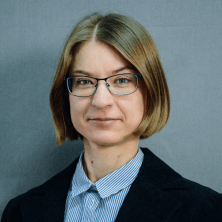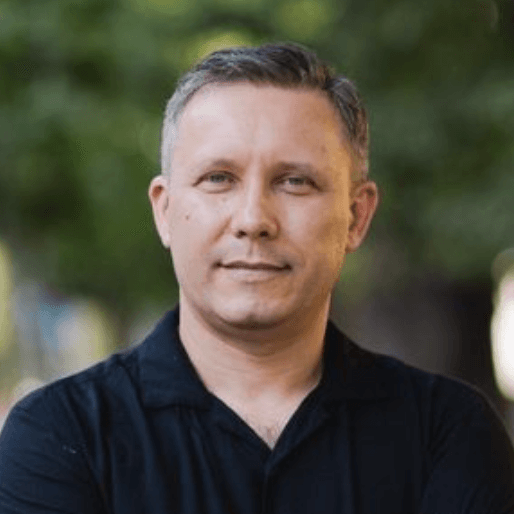Roger Myerson is an American economist, professor at the University of Chicago and the winner of the Swedish Riksbank Prize in Economic Sciences in Memory of Alfred Nobel (2007). His field of research is game theory. He also applied game-theoretic tools to political science studying the distribution of power between central and local governments. In 2019 he came to Kyiv on the invitation of one of the Ukrainian parties to discuss constitutional amendments. He agreed to give an interview to VoxUkraine and KSE to share some reflections on decentralization in Ukraine.
There is a debate among experts in Ukraine on which political system to choose – parliamentary or presidential. Which one do you think is better for Ukraine?
Professors who think about political systems tend to favor whichever system they are less familiar with. I am very familiar with all the faults of the presidential one so I think the parliamentary systems are better because they don’t have the problems that Americans have with their president. It’s a lottery who you get when you elect a president and then you are stuck with that person for the next four or five years. In the parliamentary system, you put the party into power, and one person who tends to be a little strange can be replaced by the rest of the party.
I think a mixed system can work. The best way to combine the best of both would be to have a prime minister who runs the government and a president who doesn’t run the government but is responsible for making sure that the rule of law is effective, that government officials normally don’t abuse power and that any such abuse is properly investigated. But for that to work, the president must have no power of appointment over any administrative agencies other that those related to investigations, law enforcement and judiciary.
Do you think the decentralization reform in Ukraine has been successful?
The problem is that the president is controlling the local administrations. For the president’s office to be the office that you could rely on to fight corruption, you would want the president’s office to have no responsibility for anybody’s appointment. Because if the president’s office has a prosecutor agency for fighting corruption under it but the president is also appointing all these people in the local administrations then it would be an embarrassment to the president for those prosecutors to find corruption in those local offices. So they won’t do it.
It is easier to count on national law enforcement to clean up local government when the local government hasn’t been appointed by the national political leadership.
I think an autonomous local government is important in successful democracies. When people don’t trust their national leaders, democracy doesn’t function well. But if you have an autonomous local government that has real power, then local politicians who did a better job not only will get re-elected but also will become good candidates for higher office. And in the country where there aren’t many people who seem to have done a good job on a national level that makes democracy more competitive. That’s what you need.
Do you want to say that there wasn’t any success in decentralization in Ukraine over the last years?
I think there has been some success. There has been a reform in the process for transferring money to the municipalities, not to oblasts and rayons, but to the towns. When all the money was coming from the Verkhovna Rada as a part of the national budget, the power was in the Verkhovna Rada. So what has happened is the Verkhovna Rada has voted to give up some of its power to micro-manage municipal budgets. And I think it has been successful. However, that didn’t involve any reduction of power of the president. It was the legislature that agreed to give up some power.
There are also a couple of fundamental problems with decentralizing only to municipalities. Number one is that this country became independent with many villages that were too small to be administrative centers. And secondly, there are some things, such as roads that run in the countryside, that are used by people from different villages. So the villages all have to get together to maintain these roads. I would have thought that the rayon level would be a very good level to decentralize some of those local responsibilities, especially for rural regions. Instead, we have had the process of creating this new level of hromadas. And of course it takes the negotiation and it delays things and they are going to be still too small.
I would argue that, for the most part, the presidential administration’s proposed amendment wasn’t a step in the right direction (here Prof.Myerson talks about the draft amendments to the Constitution of Ukraine of 2015 that were not implemented – Editor’s note). However, as a foreign professor, I can only raise questions. The best experts to say whether the decentralization reform is good or not are the Ukrainians who are already serving in elected local offices, who know that they don’t have much power to serve their communities. And I suspect that if they had been asked by journalists – would the proposed decentralization law enable you to serve your communities better? I think their answer would have been “no”. If their answer was “yes”, I would say I was wrong. I wish that had been a question that journalists had been asking and the voters in Ukraine had been wanting to hear.
What should be done then in the context of decentralization?
I believe all of the president’s powers over local administration should be moved to someone else. There are two places they could go. Some local agencies that are under the supervision of presidential appointees should actually be under the supervision of the Cabinet of ministers. Others among these agencies could be under local administration and then the elected oblast’s or rayon’s councils ought to be choosing the person who supervises them.
One has to decide which of the various things that are being done by government agencies in the regions should be considered part of national policy.
A local office that issues passports to citizens of Ukraine should be part of the national government. A local office that is supervising the maintenance of roads that are primarily for local use should be a local government responsibility. That’s pretty easy to say but someone has to say it for every road in order to figure out whether it’s a national responsibility to maintain a road or local responsibility. It takes some time to go through all the roads and sort of label which ones the national government is going to take care of. I like to bring the example of roads because it’s a physical object but this should be done with respect to all the government functions. It isn’t that hard to decide what’s local and what’s national but everything has to be decided and somebody has to make a list with these ‘labels’.
Are there any risks of decentralization?
People are worried that decentralization can cause separatism. I think the excessive centralization is the first cause of separatism because if everything is centralized then you may have parts of the country that have no local leader who has any interest in maintaining the state. That’s what enabled separatists to destabilize Donetsk and Luhansk. Certainly decentralizing power to a large part of the country could give the elected leaders of that large part of the country the grandiose idea of becoming an independent nation. If that’s a problem, the solution is to devolve power to lower levels. No rayon leader could ever imagine that his little rural district could become a country of its own.
Why is decentralization the most important reform? Why not others – electoral system reform, for example?
Everything is important, although I have a fundamental reason to think that decentralization is particularly important. For example, you may try to clean up the judiciary and do the best job you can. But if your politicians are still supporting corruption, then the judiciary will be corrupted again. That’s why I would start with decentralization. People think decentralization sounds good because it’s a way to bring government closer to the people — and that’s true. But as a game-theorist, I think that autonomous democratic local government also makes national politics more competitive and therefore increases the effectiveness of the national democratic competition and helps to give us a better government. Let me explain.
Despite honest and clean elections, democracy can fail if most of the voters decide that all the candidates are corrupt. So in order for elections to work, people have to believe that if they have a corrupt leader then there is someone else who would not be corrupt.
And how do you prove that? You can’t do it by speeches. There is no reason for people to believe empty speeches. But when you are an official with real power in a local government, you have a real opportunity to prove to people that you can restrain yourself and those who work for you from stealing from the public treasury, and that you can use your power to actually deliver good public services. If all of those are powers of a municipality and its mayor makes it deliver good public services, then there is a reason to believe that that this person could be a better national leader. Thus, decentralization creates a class of officials who have the power to show their ability to provide better government services and who have a motive to do so because they are not already at the top of the power.
If you are the president or prime minister and voters have very low expectations you don’t want to raise voters expectations and say “no, we can do better”. No, you want to say “what I am giving you is the best you can get, forget it”.
What do you think about the Ukrainian electoral system?
There are advantages and disadvantages to all systems. I would suggest the most common form of electoral system is a proportional representation system but one which isn’t on a national basis.
You could divide the country into districts each of which has the same number of seats [in the parliament]. That number is a variable. Let’s say if it was 20 seats per district then when you vote you would pick a party and the candidates on the party nominees’ list would have numbers and you could then indicate on the ballot the numbers of the candidates that you like best. I would allow people to approve any number of candidates on your chosen party’s list, because then people are really finding out who on a party list enjoys the confidence of the largest fraction of the party’s supporters. Then if a particular party wins 7 out of the 20 seats, then the 7 candidates on the list whose names were approved most often by voters in that district are elected to the Verkhovna Rada.
So that gives you a system where, if we in our country differ ideologically, then there are likely to be leftists and rightists representatives from all regions. I think it’s a good idea to have representatives of all parties from all over the country. And a proportional representation system that is genuinely regional has that effect. The open list system reduces the power of the national party leaders but it also gives the national party leaders some real feedback from their supporters, from people who voted for them. That’s a good dynamic, we want a party leader to promote those party activists who can actually get votes, instead of promoting those who did a good job of shining the shoes of the party leader.
Who in Ukraine supports the ideas that you express?
The short answer is “I don’t know enough”. I think that the president’s office has too much power and I think I would vote for the candidate who in a sensible way was going to reduce the powers of the president. As I said I thought that president Poroshenko’s 2015 proposal wasn’t weakening the presidency. It pretended to decentralize but I would question that.
On decentralization questions the most important people are mayors. I wish the political debate included presidential candidates talking about decentralization and other constitutional reforms that they think should be priorities. However, I wish also that people who hold local offices and know that they have really almost no ability to do anything were thinking about how to make their jobs more functional for their communities. And that’s where I would hope the debate should be.
In my country [the US], we have problems with our president now. But I think our democratic system will survive because so much power is decentralized within the states, and the president doesn’t really control the whole government. And I think that makes a big difference.
Attention
The authors do not work for, consult to, own shares in or receive funding from any company or organization that would benefit from this article, and have no relevant affiliations





